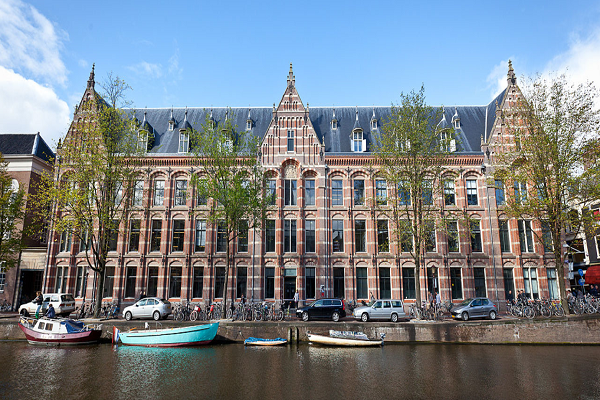University of Amsterdam coordinates project on better use of health data without sacrificing privacy
UvA-researcher Francesco Regazzoni from the Complex Cyber Infrastructure (CCI) groep of the Informatics Institute received a grant of € 750.000 to lead as project coordinator the new seven million euro European project SECURED This project aims to scale up techniques for anonymization, collaborative computation and synthetic generation of health data so that they can safely be used in medical applications.
Currently, such techniques are too impractical for a number of applications, such as real-time image classification, genomic analysis, or remote monitoring of patients. They are also often too unreliable to be used as training materials in education or for machine-learning training.
Synthetic data generation is one of the technologies explored in the project. ‘If you want to study a disease that is extremely rare and use the support of machine learning for such study’, says Regazzoni, ‘you will need a large amount of training data, but they are not always available. That’s an example of a case in which you want to generate realistic data synthetically. Another example is the use of medical data for training purposes. However, it must be ensured that the generated data have the same characteristics as the original data and that they cannot be traced back to that original data. Project SECURED is developing mechanisms to provide this guarantee.
Copyright: Francesco Regazzoni
Instead of regulations following the technology, like is often the case, we are trying to build both the novel technology and the regulations together. That’s also a unique aspect of the project.
Francesco Regazzoni
Privacy-enhancing technologies
In addition, the project tackles other privacy-enhancing technologies that enable the collaborative private computation of data, using Secure Multi Party Computation. In such approaches the computation is distributed across multiple parties in a way that individual parties can not see other parties’ data, but everybody can verify the correctness of the results and use them.
From the scientific point of view Regazzoni and his colleagues in the project want to develop technical building blocks, both in hardware and in software, that guarantee privacy preservation of health-related data. Apart from synthetic data generation and multiparty computation, the researchers also develop techniques to quantify the privacy level of data used in certain applications. Measuring and quantifying privacy is still an open scientific problem.
Regazzoni: ‘In addition to medical and health experts, we have researchers in the project who specialize in implementations in hardware and software, which is our expertise at the UvA, but we also have researchers who specialize in formal verification methods, researchers who do the mathematical groundwork, privacy experts and even legal experts.’
Shutterstock Tex vector
Europe
Europe wants to be innovative in the medical field and become less dependent on non-European technology, but of course, at the same time, Europe has to comply with privacy legislations such as the GDPR. Regazzoni: ‘Instead of regulations following the technology, like is often the case, we are trying to build both the novel technology and the regulations together. That’s also a unique aspect of the project.’
The technological building blocks developed in the project will be demonstrated in four use cases: real-time tumor classification, tele-monitoring of children with severe illnesses, synthetic data generation for education, and privacy of genomic data. Eventually, the end goal of the project is to facilitate the collaboration of health data hubs across Europe.
Project SECURED started on 1 January 2023 and will run for three years, till the end of 2025. At the begin of the third year, there will be an open call to invite interested parties to test the technologies developed within the project in their use cases. Apart from the Netherlands, the other countries involved in the project are Belgium, Ireland, Italy, Spain, Greece and Hungary.

